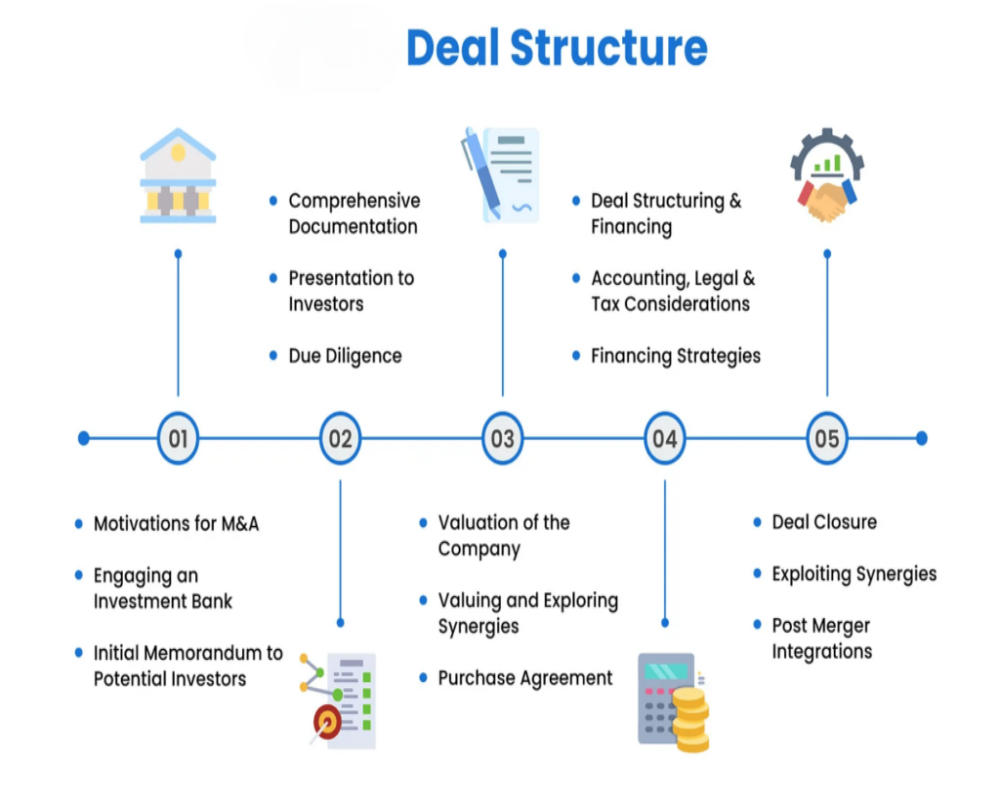Introduction
Deal structuring in industrial property sales refers to the comprehensive planning and organization of legal, financial, and operational terms that govern the sale of industrial land, buildings, or facilities. It is a critical process that ensures the transaction aligns with both buyer and seller objectives, mitigates risks, complies with regulatory requirements, and facilitates smooth ownership transfer. Unlike residential or retail property deals, industrial property sales involve more complex components such as infrastructure rights, operational liabilities, zoning regulations, and long-term development considerations. A well-structured deal not only secures value for both parties but also lays the groundwork for post-sale success.
Identifying the Nature of the Asset
Understanding whether the property includes raw land, a built-up industrial facility, a warehouse, or a running plant is the first step in structuring the deal. The nature of the asset determines the legal documentation, tax implications, and evaluation criteria used in the negotiation.
Determining the Type of Transaction
Industrial property deals can be structured as outright sales, sale and leaseback arrangements, partial equity transfers, or asset purchases through a special purpose vehicle (SPV). The transaction type depends on the buyer’s investment strategy, tax preferences, and long-term use plans.
Establishing Ownership and Title Verification
Title clarity is a core element of any deal. Structuring starts with verifying ownership history, checking for encumbrances, and ensuring the property is free of disputes or legal claims. Without a clear title, the transaction is vulnerable to future litigation.
Assessing Zoning and Land Use Compliance
Industrial properties must be legally permitted for industrial use. The deal must be structured with consideration of the zoning status, land conversion certificates (if applicable), and conformity with development regulations of the local authorities.
Valuation and Pricing Framework
Accurate valuation using methods such as market comparison, income potential, or cost-based approaches helps establish a fair price. The deal structure may include mechanisms for price adjustments based on due diligence outcomes or future development approvals.
Designing the Payment Structure
Payment terms are central to deal structuring. Options include full upfront payment, staggered installments, or milestone-based payouts. Structuring may also involve the use of escrow accounts to protect both buyer and seller during transitional phases.
Incorporating Tax Efficiency
Both parties aim to optimize tax outcomes. Deal structuring must factor in capital gains tax, GST, stamp duty, and registration costs. Creative structures like SPVs, land pooling, or asset leasing may be used to reduce tax burdens legally.
Defining Transfer of Assets and Liabilities
In addition to land, the transaction may involve the transfer of buildings, machinery, infrastructure, and even employees. The deal must clarify what is included and who assumes existing liabilities such as utility dues, loans, or maintenance responsibilities.
Outlining Approvals and Regulatory Clearances
The structure must include timelines and responsibilities for obtaining necessary approvals such as environmental clearances, building permits, fire safety certifications, and pollution control board consents. Delays in these areas can jeopardize the entire deal.
Drafting Representations and Warranties
Sellers typically provide representations about the property’s condition, legality, and compliance. Buyers use these declarations to seek recourse in case of misinformation. These clauses should be clearly defined in the agreement to maintain legal clarity.
Including Indemnity and Risk Allocation Clauses
Risk-sharing is a critical part of structuring. Indemnity clauses protect buyers from unforeseen liabilities such as prior encroachments, tax dues, or hidden defects. Liability caps and indemnity periods should be negotiated fairly and documented precisely.
Setting Dispute Resolution Mechanisms
Dispute resolution strategies such as arbitration, mediation, or jurisdiction clauses should be included to address potential conflicts. A well-structured deal outlines how disagreements will be managed without derailing the transaction or project timelines.
Incorporating Possession and Transition Timelines
The agreement should specify the date and condition of possession, including any transitional support from the seller. If the buyer is taking over an operational facility, a structured transition period ensures business continuity and smooth handover.
Ensuring Documentation and Legal Compliance
Deal structuring involves preparation and registration of legal instruments such as the agreement to sell, deed of conveyance, and land registration documents. These must adhere to local laws and be duly executed to make the transaction legally enforceable.
Providing for Post-Transaction Obligations
Even after sale execution, certain responsibilities may remain, such as completing infrastructure work, transferring licenses, or resolving pending dues. The deal structure must define who is responsible for post-sale obligations and how compliance will be ensured.
Conclusion
Deal structuring in industrial property sales is a meticulous process that balances legal soundness, financial efficiency, and operational readiness. By addressing aspects such as transaction type, ownership verification, regulatory approvals, tax implications, and risk allocation, both buyer and seller can protect their interests and ensure a smooth transaction. In the industrial sector, where deals have long-term implications for operations and investment, a well-structured agreement is not just a formal requirement—it is the cornerstone of a successful and sustainable business decision.
Hashtags
#DealStructuring #IndustrialProperty #RealEstateSales #PropertyInvestment #CommercialRealEstate #RealEstateDeals #InvestmentStrategies #PropertyManagement #RealEstateMarket #CommercialProperties #RealEstateInvesting #PropertySales #InvestmentOpportunities #RealEstateDevelopment #MarketAnalysis #PropertyValuation #NegotiationSkills #RealEstateTrends #CommercialInvestment #PropertyFinance


